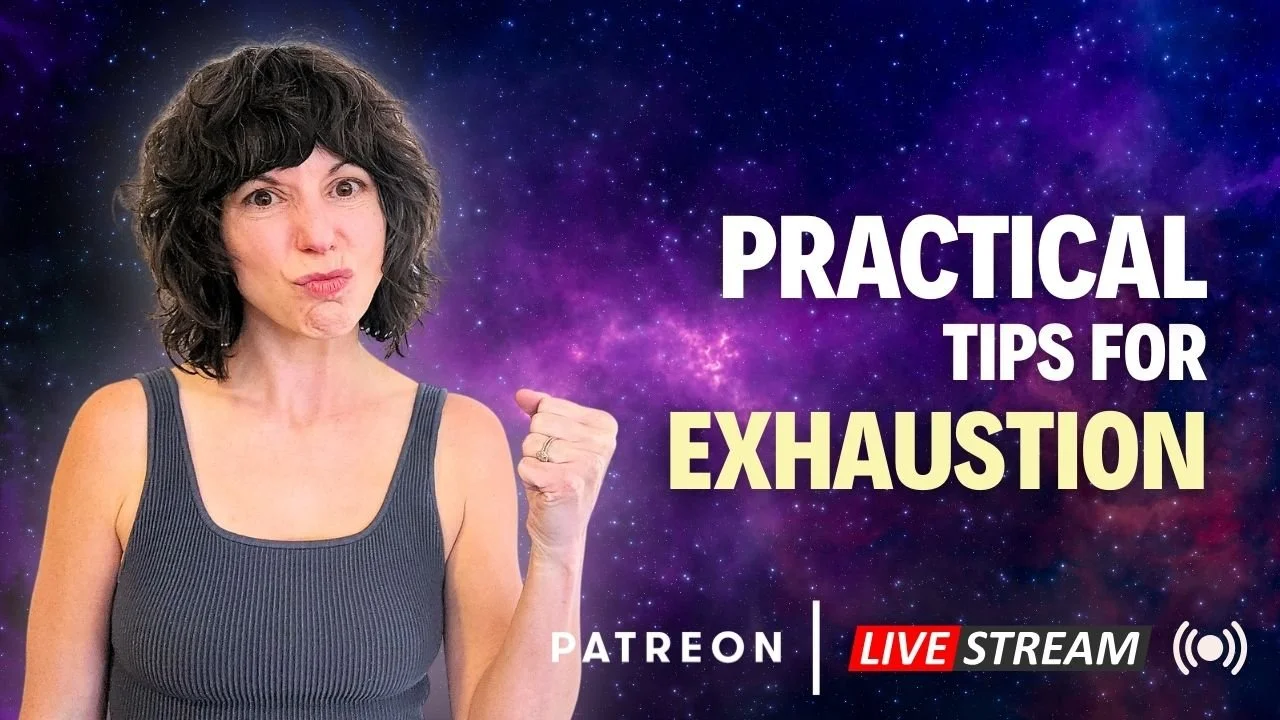Types of Grief You Carry Without Realizing & How to Survive Each One
Have you ever felt guilty for grieving something society says you shouldn't?
I've spent years as a therapist watching people struggle with grief that doesn't fit neat categories. The kind of grief that makes you question your sanity. The grief that hits highly sensitive people especially hard.
Most therapy focuses on traditional loss. Death of a loved one. End of a marriage. Job termination.
But what about the grief that starts before someone dies? What about mourning a relationship with someone who abandoned you decades ago? What about the grief nobody validates?
Your emotional intelligence grows when you understand these hidden forms of grief. Boundaries become essential tools for survival. Your wellbeing depends on recognizing all types of loss.
Let me walk you through five forms of grief that shape your psychological landscape. These aren't textbook definitions. These are real patterns I see in my practice every day.
Grief That Begins Before Loss: Understanding Anticipatory Grief and Mental Health
Highly sensitive people often experience what I call anticipatory grief. This grief starts before the actual loss occurs.
Your grandmother gets diagnosed with terminal cancer. Your marriage shows clear signs of ending. Your job becomes unstable. The loss hasn't happened yet, but the grief begins.
HSPs frequently create impossible expectations here. You think: "I've known this was coming. I've been preparing. I should handle this better when it actually happens."
This thinking pattern destroys your emotional stability.
Your mind processes information quickly. Someone tells you their diagnosis. You immediately understand the implications. Your brain files away the facts within minutes.
Your heart operates differently. Emotional intelligence requires understanding that feelings move at their own pace. Your heart needs time to catch up to what your head already knows.
I lost my grandmother when I was fifteen. She had an aggressive brain tumor. From diagnosis to death took seven months. I watched her decline while simultaneously trying to prepare myself emotionally.
When she died, I felt shocked by my own grief. I had anticipated this loss for months. Why was I still devastated?
Boundaries with your own expectations become crucial here. You will experience grief before, during, and after the loss. This doesn't mean you're doing grief wrong. This means you're human.
Therapy helped me understand that anticipatory grief is real grief. It deserves respect. It requires processing time. Your wellbeing improves when you stop judging your timeline.
The Grief Society Won't Validate: Disenfranchised Grief in Mental Health
Some grief gets dismissed by society. I call this disenfranchised grief. These losses don't receive validation or support.
Losing a stepchild ranks as my biggest disenfranchised grief. People would give me strange looks when I mentioned this loss. "It's only a stepchild," their faces seemed to say.
Highly sensitive people experience many forms of disenfranchised grief:
Pet loss when you're childfree
Miscarriage or infertility struggles
Leaving an abusive relationship
Death of an estranged family member
Job offer that never materialized
End of an affair
Therapists sometimes miss these patterns. Therapy might focus on "legitimate" losses while ignoring the grief that society deems inappropriate.
Emotional intelligence means validating your own grief without external permission. Boundaries become essential when others dismiss your pain.
I pressed charges against my father for abuse. Putting him in jail created complex grief. Society expected me to feel only relief and vindication.
Instead, I grieved the loss of the parent who had shown me the most interest. Abusers aren't all bad. They feed you with one hand while hurting you with the other. This complexity creates profound grief.
HSPs feel this complexity deeply. Your emotional intelligence allows you to hold contradictory feelings simultaneously. You can feel grateful for escaping abuse while mourning what you've lost.
Grief doesn't need external validation to be real. Your psychological wellbeing improves when you stop waiting for others to understand your pain.
Grief Without Closure: Understanding Ambiguous Grief and Emotional Intelligence
Ambiguous grief occurs when someone is physically present but emotionally unavailable. Or when someone disappears without explanation.
Highly sensitive people struggle intensely with this form of grief. Your need for connection and closure runs deep.
My biological father abandoned me in elementary school. He didn't die. He chose to leave after I had bonded with him. This created years of spinning thoughts.
"He lives in the same city. He just doesn't want me. Or does he want me but can't handle my mother? Is he coming back?"
Ambiguous grief keeps hope alive in destructive ways. You can't process the loss because it feels incomplete. Boundaries with dysfunctional hope become necessary for your emotional health.
Therapy taught me that some grief doesn't get neat endings. Emotional intelligence requires learning to tolerate this uncertainty.
Dementia creates another form of ambiguous grief. You lose someone while they're still alive. Their body remains but their essence disappears. Your psychological stability suffers because you can't properly mourn someone who's technically still there.
HSPs need permission to grief incomplete losses. Your emotional intelligence allows you to feel the both-and nature of these relationships. Someone can be present and absent simultaneously.
Boundaries with your own need for closure become essential. Some stories don't get endings. Some grief lives in permanent uncertainty.
The Ripple Effects: Understanding Secondary Grief and Boundaries
Secondary grief includes all the ripple effects from a primary loss. Grief is never just one loss. It creates waves that touch every part of your life.
Therapists sometimes miss these patterns. Therapy might focus on the main loss while ignoring the secondary impacts.
When my grandmother died, I didn't just lose her. I lost:
The future where she meets my husband
Her guidance through major life decisions
Family gatherings that felt safe
Someone who truly understood me
Stories about our family history
Her recipes and traditions
Highly sensitive people feel these ripple effects intensely. Your emotional intelligence recognizes the vast network of connections that one person represented.
Divorce creates massive secondary grief. You lose your spouse, but you also lose:
Financial security
Shared dreams and future plans
Your identity as part of a couple
Mutual friends who take sides
Daily routines and familiar rhythms
In-laws who provided support
HSPs need boundaries with minimizing these losses. Your healing requires acknowledging the full scope of what you've lost.
Write down all the layers of your grief. This gives shape to overwhelming feelings. Emotional intelligence grows when you name what you've actually lost.
Therapy becomes more effective when you address secondary grief directly. Boundaries with rushing your process become essential. Each layer needs attention and time.
When Grief Accumulates: Understanding Cumulative Grief and Mental Health
Cumulative grief happens when multiple losses stack without recovery time. Life doesn't always give you space to process one loss before the next arrives.
Highly sensitive people get knocked down by this pattern repeatedly. Your nervous system needs time to regulate between major stressors.
Picture standing in ocean waves. One wave knocks you down. Before you regain your footing, another wave hits. Then another. Grief works similarly when losses accumulate.
I lost my grandmother at fifteen. My grandfather died when I was seventeen. I hadn't processed the first grief before the second hit. My emotional equilibrium suffered because I couldn't find stable ground.
Emotional intelligence requires recognizing when you're in cumulative grief. Boundaries with your own expectations become crucial. You can't process multiple major losses at normal speed.
Therapy helped me understand that some life periods involve burning through karma quickly. Psychological resilience means accepting these intense seasons rather than fighting them.
HSPs often judge themselves harshly during cumulative grief. You think you should handle stress better. You compare yourself to others who seem more resilient.
Boundaries with self-criticism become essential. Grief that accumulates requires different strategies than single losses. Your overall wellbeing improves when you adjust your expectations accordingly.
Sometimes you need to float with the current rather than fighting it. Emotional intelligence includes knowing when to surrender to difficult processes.
Building Emotional Intelligence Through Grief Work
Grief teaches emotional intelligence like nothing else. These experiences force you to develop skills you never knew you needed.
Your healing improves when you stop judging your grief timeline. Boundaries with rushing become essential for recovery.
Highly sensitive people need permission to feel deeply. Your emotional intelligence is a gift, not a burden. Therapy helps you learn to honor your sensitivity while protecting your psychological wellbeing.
HSPs often apologize for their grief. You think you're too much, too sensitive, too emotional. These beliefs damage your emotional stability over time.
Boundaries with people who dismiss your grief become necessary. Emotional intelligence means choosing relationships that honor your full humanity.
Grief is not something to get over. It's something to grow through. Mental health means carrying your losses with dignity rather than shame.
Therapy provides tools for navigating all types of grief. Boundaries protect your energy during vulnerable times. Emotional intelligence helps you honor your attachments without drowning in them.
Your grief matters. All of it. Even the kinds society doesn't validate. Healing begins with this radical acceptance of your own experience.
Episode Tags
- ADD 1
- Abuse 17
- Alcohol 3
- Anger 11
- Archetypes 1
- Bullying 6
- Childhood 37
- Codependency 11
- Covid 4
- Crystal Catalina 4
- Depression 15
- Detachment 2
- Disassociation 4
- Emotions 75
- Existentialism 2
- Faith 1
- Family 28
- Fatigue 4
- Focus 3
- Gratitude 11
- Grief 14
- Guilt 2
- Healers 7
- Healing 52
- High Sensation 4
- Hope 1
- Hypervigilance 7
- Introverts 6
- Lonliness 9
- Love 3
- Manifesting 5
- Manipulation 20
- Masculinity 1
- Men 1
- Mindfulness 39
- Money 10
- Music 3
- Nutrition 2
- Overthinking 8
- PTSD 13
- Parenting 12
- People Pleasing 10
- Perfectionism 6
- Pets 4
- Relationships 21
- Resiliency 15
- Sadness 1
- Self Esteem 19
- Self Love 11
- Self Respect 1
Upcoming Events
Episode Tags
- ADD 1
- Abuse 17
- Alcohol 3
- Anger 11
- Archetypes 1
- Bullying 6
- Childhood 37
- Codependency 11
- Covid 4
- Crystal Catalina 4
- Depression 15
- Detachment 2
- Disassociation 4
- Emotions 75
- Existentialism 2
- Faith 1
- Family 28
- Fatigue 4
- Focus 3
- Gratitude 11
- Grief 14
- Guilt 2
- Healers 7
- Healing 52
- High Sensation 4
- Hope 1
- Hypervigilance 7
- Introverts 6
- Lonliness 9
- Love 3
- Manifesting 5
- Manipulation 20
- Masculinity 1
- Men 1
- Mindfulness 39
- Money 10
- Music 3
- Nutrition 2
- Overthinking 8
- PTSD 13
- Parenting 12
- People Pleasing 10
- Perfectionism 6
- Pets 4
- Relationships 21
- Resiliency 15
- Sadness 1
- Self Esteem 19
- Self Love 11
- Self Respect 1




















